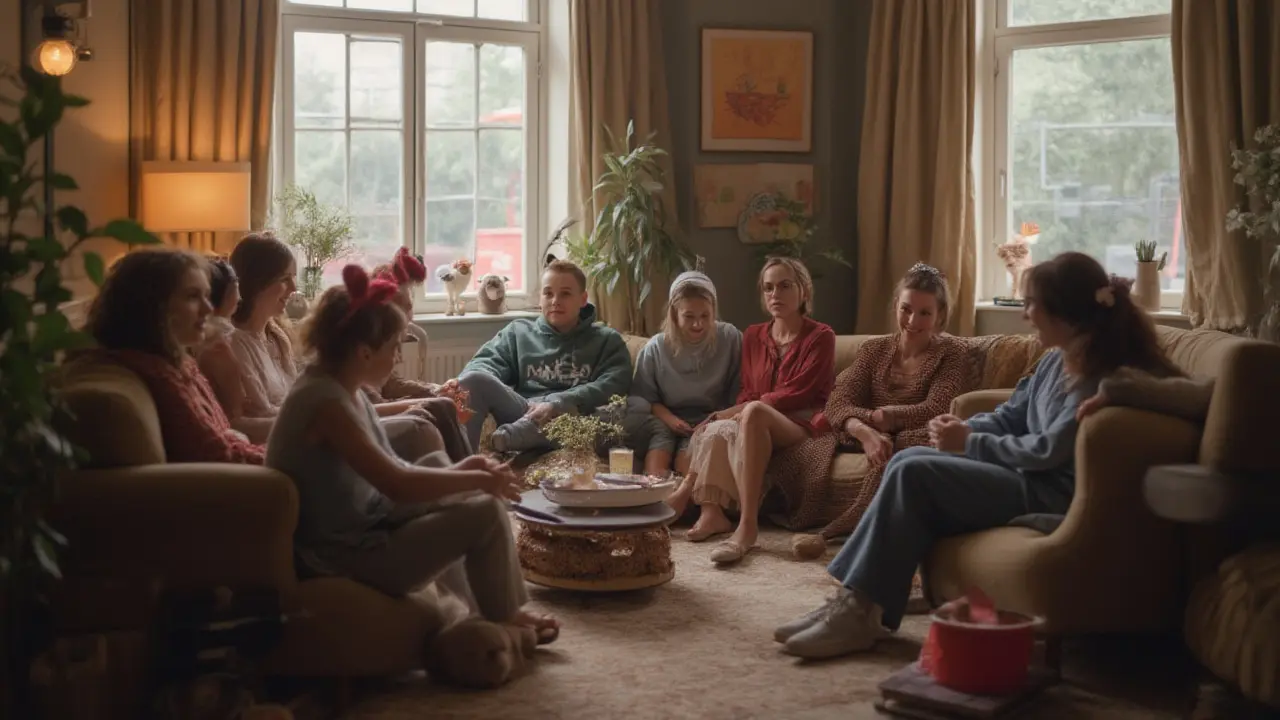Pup Play isn’t just a buzzword you stumbled onto by accident. It’s a real thing, and, honestly, it’s way more popular than you’d guess. Think adults roleplaying as playful, loyal, sometimes mischievous pups—but with clear rules, boundaries, and a whole lot of consent. For some, it’s all about expressing a side of themselves that’s pure fun or comfort; for others, it’s deep, emotional connection, stress relief, or just shedding all those grown-up worries for a while.
Forget the old cliché that kink or roleplay stuff is only for a few secretive people. Pup Play is now a well-known branch of the kink world—open to everybody who’s curious, no matter your gender, body, or background. People love it for tons of reasons: the freedom to let go, to be cared for, or to connect with a community that gets it.
If you’re on the fence or just totally new, don’t stress. There’s no one right way to do Pup Play. This guide will break down where it came from, why it hooks so many people, and what it really looks (and feels) like—from gear and safety to real tips to get started.
- Understanding Pup Play
- Benefits of Pup Play
- Getting Started: What to Expect
- Safety, Community, and Resources
Understanding Pup Play
Pup Play is a form of roleplay where adults, called "pups," take on the behaviors and mindset of a dog, while others may fill the "handler" role, caring for or guiding them. Everything is based on clear consent and communication. It doesn’t always tie to romantic or sexual activity—sometimes it’s just about fun, trust, or using playful energy to escape daily stress.
If you’ve stumbled into a Pup Play community, you’ll notice the gear: hoods, collars, harnesses, knee pads, and tails are common, but none are required. People can enjoy Pup Play dressed up or in ordinary clothes. The main focus is on acting playful, loyal, or energetic, and expressing yourself however feels right.
Pup Play has roots tied to the larger BDSM and kink culture, but it has spun off its own friendly subculture with meet-ups, clubs, and competitions. These social gatherings aren’t just about showing off gear—they’re about community, solidarity, and learning from each other. In bigger cities, dedicated “mosh” events (think puppy playdates, but for adults) let folks safely explore this role with others.
Here’s a look at how Pup Play stacks up compared to related practices:
| Practice | Key Feature | Primary Benefit |
|---|---|---|
| Pup Play | Animal-like behavior, loyalty, gear optional | Emotional release, playful bonding |
| Pony Play | Horse roleplay, tack/gear, structured routines | Discipline, showmanship, fantasy expression |
| Pet Play (general) | Any animal roleplay, less specific traits | Varied: comfort, submission, fun |
Pup Play stands out because it’s usually less about strict rules or obedience and more about social play, freedom, and joy. It often attracts folks who are introverted, shy in daily life, or just eager for a fresh way to connect and relax.
When you see a group of pups at a club or read about a local mosh, it’s not about being silly or childish. It’s about allowing a safe, judgment-free space for adults to discover another side of themselves. If this sounds like your vibe, you’re not alone—the Pup Play scene has grown steadily, with large events popping up all over the US and Europe in the last decade.
Benefits of Pup Play
All right, so why do people get so hooked on pup play? The answer is way more layered than you might think. At its core, pup play lets people take a total break from everyday stress, responsibilities, and even the internal noise we all have. Slipping into a pup headspace means you can ditch that adult anxiety and, for a little while, focus on simple things—like play, companionship, or even just feeling cared for.
A lot of individuals find that pup play offers a real sense of stress relief. Playfulness—especially adult play—does wonders for the mind. Letting yourself pant, crawl, bark, or just respond to basic needs gives your head a break. You might (seriously) feel a physical drop in tension. Your heart rate can slow. Your mind quiets down. This kind of relaxation is super helpful for people with high-pressure jobs or busy family lives. (Trust me, as a parent myself, sometimes it’s exactly what you need.)
Pup play also taps into community and connection. Both pups and handlers build trust, clear communication, and sometimes even lasting friendships or relationships. There’s no single script—for some, it’s about companionship, for others, being cared for or expressing a different side of themselves. It’s a safe place to let feelings out, whether you’re goofy, shy, energetic, or just looking to be yourself without judgment.
You’ll also find practical pluses, especially for folks who have trouble relaxing, trusting, or dealing with negative self-talk. Pup play encourages mindfulness in ways you might not expect. When you’re in the moment, focused only on a toy, a belly rub, or a playful romp, it’s hard to worry about tomorrow. That’s emotional self-care, plain and simple.
Here’s a quick look at some of the top benefits people describe:
- Stress reduction and pure relaxation
- Boosted self-confidence from self-expression
- Better communication and trust with partners or fellow pups/handlers
- A safe way to explore new aspects of your personality
- Greater sense of community and belonging
If you’re a fan of real data, here’s what the key benefits look like at a glance:
| Benefit | Description | Impact |
|---|---|---|
| Stress Relief | Letting go of adult worries during playful role | Reduces tension and anxiety |
| Connection | Bonding with handlers or fellow pups | Boosts trust and social skills |
| Self-Discovery | Exploring new parts of your identity | Mindfulness, improved self-acceptance |
| Community | Engagement with a welcoming group | Fights isolation, brings belonging |
| Mindful Play | Staying present, focusing on simple joys | Supports mental wellness |
Different people get different things out of pup play—and that variety is part of what makes it so addictive for so many.

Getting Started: What to Expect
Stepping into Pup Play for the first time can feel a little nerve-wracking, but honestly, there’s no secret handshake or master-level test. What trips up most folks? Not knowing what actually goes on. Here’s how it typically looks and feels when you’re getting started.
Most newbies start with simple activities—no fancy gear or complicated rituals needed. You (or your partner) might put on a collar or basic pup hood, take on a new name, and get down on all fours. Roleplay kicks off from there, ranging from playful fetch games to guided training sessions—whatever feels comfortable. The core idea: drop your adult stresses and give yourself permission to be totally present, playful, and cared for.
- Some group meetups happen in private homes or kink-friendly clubs—think social, not scary.
- Private sessions are common and feel more personal, especially if you’re shy.
- There’s usually a focus on establishing ground rules—your wants, don’ts, and hard limits.
- Communication is a must. If something doesn’t feel right, you say so.
Many people report feeling surprisingly relaxed, playful, or even empowered after their first experience. Here’s a quick breakdown of what you can expect compared to other kinds of roleplay:
| Type | Main Activity | Level of Physicality | Focus |
|---|---|---|---|
| Pup Play | Acting as a pup (playing, following commands) | Medium to high | Fun, trust, and escapism |
| General Roleplay | Character acting (nurse, boss, teacher, etc.) | Low to medium | Storytelling, fantasy |
| BDSM (General) | Dominance, submission, bondage | Varies | Control, sensation |
Don’t forget: there’s no need to dive all in at once. Start slow, talk it out, and learn as you go. If you’re flying solo or with a partner, most folks try a few things then tweak from there. And not every session looks the same—sometimes it’s a full-on collar and hood, and other times it’s just a headspace thing. The only common rule? Respect and fun for everyone involved in pup play.
Safety, Community, and Resources
Safety is honestly the number one rule in pup play, and it goes way beyond just putting on the right gear. Before trying anything new, communication is everything. Talk about what you’re into, your limits, what’s totally off-limits, and use safe words or even safe gestures—especially if a pup is gagged or masked. It’s not about being awkward; it’s about making sure everyone’s feeling good and respected.
When it comes to hygiene, keep your gear clean. Wash hoods, tails, harnesses, and toys regularly with mild soap and water. If you share gear, sanitize first. Protective barriers like pup mitts or knee pads can keep you safe physically, especially if you play on hard floors.
- Check all gear for wear or weak spots before every session.
- Use personal towels, and never share insertable toys between users without cleaning.
- Drink water often, especially during active play—it’s easy to forget basics when you’re having fun.
The pup play community is famous for looking out for each other. There are regular munches, online forums, and real-life events where newcomers are welcomed with zero pressure. You’ll find global groups on Reddit, Discord, and even Facebook. Some cities have pup moshes: safe, social meetups where you can just watch, ask questions, or join in when you’re ready. If you want a more guided experience, some established members offer mentorship or resources for beginners, and many events have “pup handlers” whose role is to keep play safe and fun for everyone.
If you ever feel unsure about anything, reach out to forums or community leaders. Most are happy to answer questions anonymously and love sharing solid resources, from gear guides to links for local groups. For official info, look for well-known organizations or shops that back up their claims with real-world reputation, not just marketing talk.
Some people wonder about legal and cultural stuff. Pup play itself is legal in most places as long as everything is consensual and private. Of course, public nudity or risky outdoor play may break local laws—so always check before taking anything out of the bedroom or play space. Remember, cultural acceptance is growing but can still vary a lot. Stick to trusted, open-minded venues and circles if you’re just starting out.
Bored with reading? YouTube and podcast hosts in the community cover everything from buying your first hood to complex relationship dynamics. And don’t hesitate to grab a book—some are written specifically by experienced pups or handlers, with super practical tips. If you’re looking for products, start with specialized kink shops online, paying attention to reviews and community feedback rather than fancy ads.

